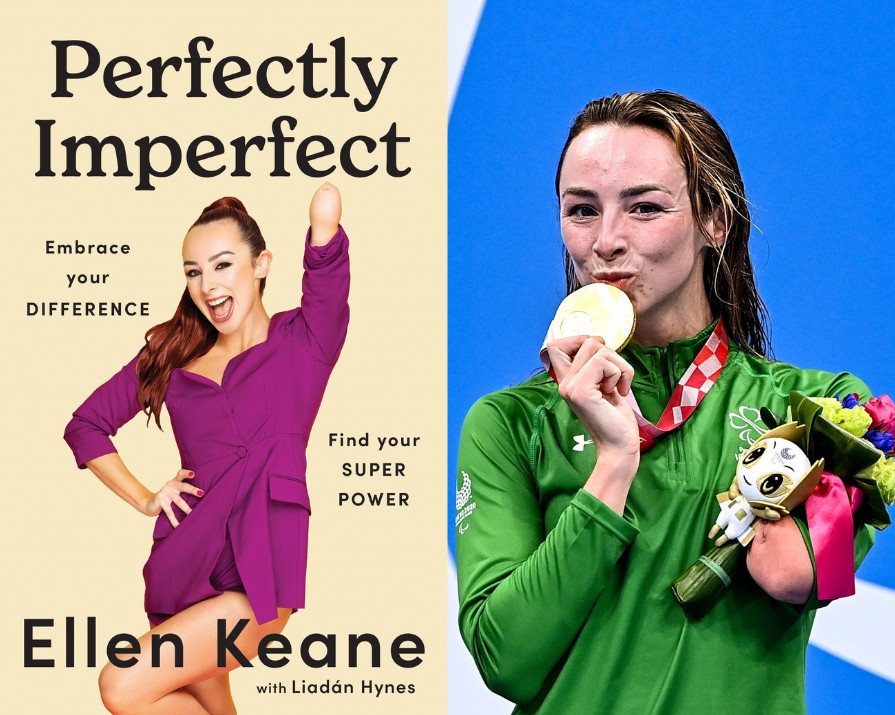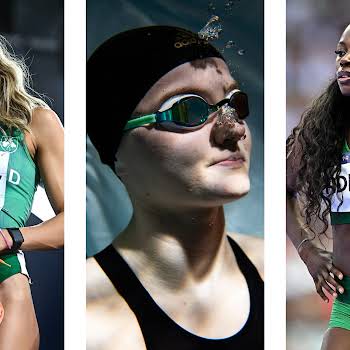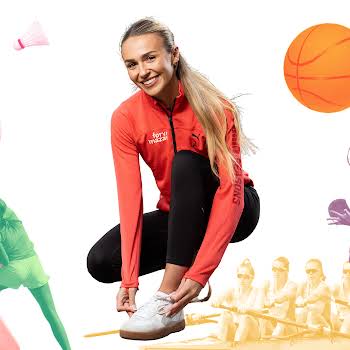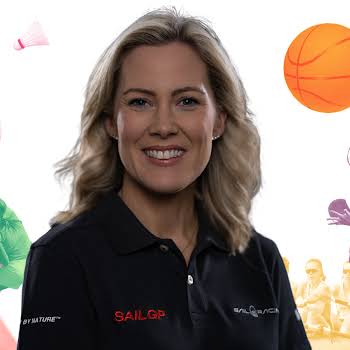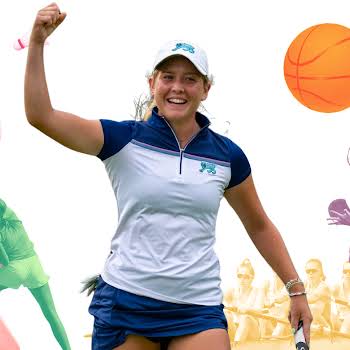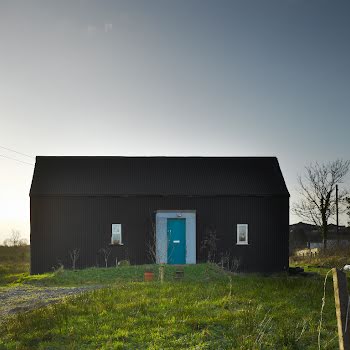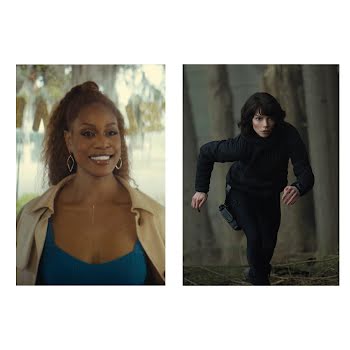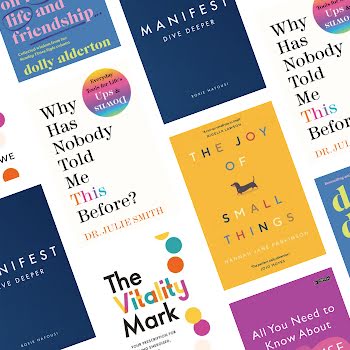
Read an extract from Ellen Keane’s empowering new biography, ‘Perfectly Imperfect’
By IMAGE
10th Jan 2024
10th Jan 2024
“I have always loved the idea of new beginnings. The fresh start, the possibilities that that brings, the sense of a blank sheet of paper; whatever you want, you can put on it.”
Before she was celebrating her ‘lucky fin’, four-time Paralympian, Ellen Keane spent most of her younger years ashamed of who she was. Born with only one arm, Ellen dreaded anyone noticing she was different, and she longed to fade into the background or simply be like everybody else.
So how did Ellen transform from a shy young girl hiding in long-sleeved hoodies to a strong, confident woman, a gold-winning Paralympic champion, and a centre-stage, bejewelled Dancing With the Stars finalist?
The day Ellen stopped hiding her true self was the day her life began. She turned her disability into her superpower and began to believe in her unique abilities – and through that belief, she found success beyond her wildest dreams.
Perfectly Imperfect is a joyful and inspiring story of self-love and celebrating differences – no matter what obstacles seem to exist alongside them. With the hard-won lessons and good-natured humour of a beloved big sister, Ellen shares advice, anecdotes and reader check-ins to encourage acceptance, empowerment and authenticity in us all.
Liadán Hynes is a journalist and bestselling author of two books, How to Fall Apart and Courting. She is the host of the podcast How to Fall Apart, and lives in Dublin with her daughter.

I have always loved the idea of new beginnings. The fresh start, the possibilities that that brings, the sense of a blank sheet of paper; whatever you want, you can put on it. A new beginning is a time that allows you to get rid of what isn’t working, re-examine what you want to change before you actually move into the next phase. To reconsider things, and figure out what you want to achieve.
For me a new beginning always comes out of the ending of something professional or personal. When something ends, a Games, a relationship, school, I always feel so liberated from it, whether it was a good or a bad experience.
It’s like – OK, now I can let go of it.
Because I’m quite an emotional person, I will deeply invest my emotions into something. So when it’s over, it’s nearly a relief in ways. There can be a period of mourning; in the case of a Games, it can feel quite sad because I have spent four years of my life training for something that happens in a very brief period, and then it’s just gone and I have to get onto the next thing. But I put it down and move on.
When something ends, with that ending go all the mistakes that I have made. Moving on to something new, I just take the lessons I’ve learned from the past, to put into whatever it is I’m doing next. I find that so exciting, this clean slate. You’ve not yet made any mistakes; you’ve not fucked up yet. You can literally be anyone you want to be.
Ask yourself what your new beginning could be.
Maybe you have picked up this book in January – the start of the new year is a perfect example. But it needn’t be so obvious. It could be some- thing much more personal to you. Beginning a new job. Ending a relationship. Just simply deciding you want to make some changes, and with that, ditching old habits, ending ways of behaviour that are not working for you.

A lot of my new beginnings come about because of sport.
Your season ends, and no one else really remembers you had a bad one. They only remember your good seasons. Or the good race that you had. So each season is a new beginning, a fresh chance. It’s about giving yourself permission to be excited and to think about what can come next.
It is never too late to allow yourself a new beginning.
Rolling up my sleeve
After school, I chose to study culinary entrepreneurship in DIT. It was also at this point that I decided college was going to be my new beginning in my personal life, that I was going to try some- thing new. I had become so sick and tired of feeling unhappy, I felt I had to try something different. If I couldn’t yet feel good about myself, I was going to fake it instead.
So I decided that on the first day of college, I was going to roll up my sleeve and embrace who I was. Create a fresh start for myself, show everyone my true self from day one. No more hiding. And that’s what I did.
This was a huge deal for me. Even though it was still warm in Dublin that day, the end of the summer, I wore a shirt with sleeves just in case I needed the coverage. The prospect of what I was about to do felt terrifying. I had by now spent years trying to conceal my arm, keep my disability, and therefore my difference, under the radar, everywhere but in the pool. There were people I had sat with every day for a year in the Institute of Education who had no idea I had one arm.

I was intensely aware as I approached the Cathal Brugha Street building that my arm was not covered up as it usually would be. Even though I had passed the building countless times on my way into town from Clontarf, where I grew up, I couldn’t find the entrance. As I was searching for the front door, a girl approached. She introduced herself as Sinéad; she was studying the same course as me. I didn’t think she noticed my arm straight away, and we entered, meeting another girl, Shauna, also on our course, on the stairs. A good start.
In the classroom, I ended up sitting beside a guy called Adam. As we chatted, I told him I was a swimmer. It turned out he knew another Paralympian, and as we talked, I felt an invisible safety net slowly begin to stretch out beneath me. I started to relax. Maybe this might be OK? I survived the day, even getting through my chair breaking, and momentarily being the centre of the class’s attention. It was fine, everyone laughed, I laughed. It was a normal thing that could happen to anyone in college. My sleeve stayed rolled up.
On the second day, our lecturer was giving a demonstration on passing knives safely. He chose me to be a part of it, in front of the entire class. To do it as he showed us, you needed to have two hands. I knew immediately I would not be able to repeat what he had done, so I did it my own way. It was embarrassing, and I remember just wanting it to be over. Afterwards, I stayed back to explain that I might need to do certain things differently.
‘I’m just going to tell the lecturer that I have one arm,’
I told Sinéad and Shauna, as everyone began to leave the room. I automatically felt safe with these two girls, and when I left the classroom after talking to my lecturer, they were still there, waiting for me.
Slowly, as the term progressed, my confidence started to build. I began to notice that my thoughts were just that: thoughts, not real. And that yes, people would stare, but then they would move on.
How to stop hiding
The more I stopped hiding, and instead spoke up about who I was, the easier it became. I had spent seven years of my life hiding under coats and hoodies, terrified of anyone seeing who I really was, and what their reactions might be. Now, in the first year of my course, I began to let go of the person I had been throughout my secondary school years. To shed some of the fears that had kept me trapped, held back.

Gradually I began to realise that the assumptions I had made in my head were not necessarily true. I had automatically assumed Adam did not know anyone with a disability; in fact I was already judging him, by assuming he would judge me. I could have missed out on his friendship, because of my mistaken assumption about his beliefs and experiences.
Maybe my assumption that no one would understand me had been holding me back? With college, I was faced with the chance of a new beginning, and I grabbed it. There was a liberation to it; where in school being different from the pack had felt terrifying, now it felt like you could do, or be, anything, and no one would give a damn. I began to feel free.
As first year progressed, I began to notice how light I felt, how much happier I was becoming in myself. When we went out, I no longer felt the need to wear long sleeves to conceal myself. My new beginning was working, and things were changing for me.
Letting go isn’t always easy and it is not always positive. Yes, moving from secondary school to college was largely a good experience, but there have been other new beginnings which were more mixed. It’s important to honour that, to acknowledge all the emotions involved as you move from one phase of your life to another. It’s rarely black and white. But a new beginning is always a chance for change.
‘Perfectly Imperfect’ by Ellen Keane from Gill Books is out now, priced at €19.99.











